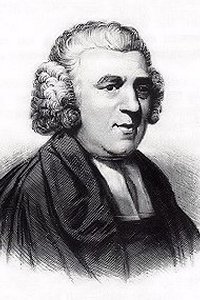Introduction

Words: John Newton, 1776.
Music: Solitude (Downes) Lewis T. Downes, 1851 (🔊 pdf nwc).
If you know where to get a good picture of Downes (head & shoulders, at least 200×300 pixels),
I am with you always.
Matthew 28:20

Words: John Newton, 1776.
Music: Solitude (Downes) Lewis T. Downes, 1851 (🔊 pdf nwc).
If you know where to get a good picture of Downes (head & shoulders, at least 200×300 pixels),
Bull, in his life of Newton, gives the following account of the origin of this hymn:—
In November [1776] Mr. Newton underwent an operation for a tumour in his thigh. He was mercifully brought through it, and was very soon able to resume his ordinary duties. On this occasion he composed the 71st hymn, Bk. ii. in the Olney Hymns.As intimated, the hymn appeared in the Olney Hymns, 1779, in 7 st. of 4 l., and headed
Parting.It came into use in the older collections, and is still found in a few hymnals both in G. Britain and America. The hymn, For a season called to part, which is given in the New Cong., 1859, No. 848, and other collections, especially in America, is composed of st. iv., v., and vi. of this hymn.Julian, p. 85.
As the sun’s enlivening eye
Shines on every place the same;
So the Lord is always nigh
To the souls that love His name.
When they move at duty’s call,
He is with them by the way;
He is ever with them all,
Those who go, and those who stay.
From His holy mercy seat
Nothing can their souls confine;
Still in spirit they may meet,
And in sweet communion join.
For a season called to part,
Let us then ourselves commend
To the gracious eye and heart,
Of our ever present friend.
Jesus, hear our humble prayer!
Tender shepherd of Thy sheep!
Let Thy mercy and Thy care
All our souls in safety keep.
In Thy strength may we be strong,
Sweeten every cross and pain;
Give us, if we live, ere long
Here to meet in peace again.
Then, if Thou Thy help afford,
Ebenezers shall be reared;
And our souls shall praise the Lord
Who our poor petitions heard.